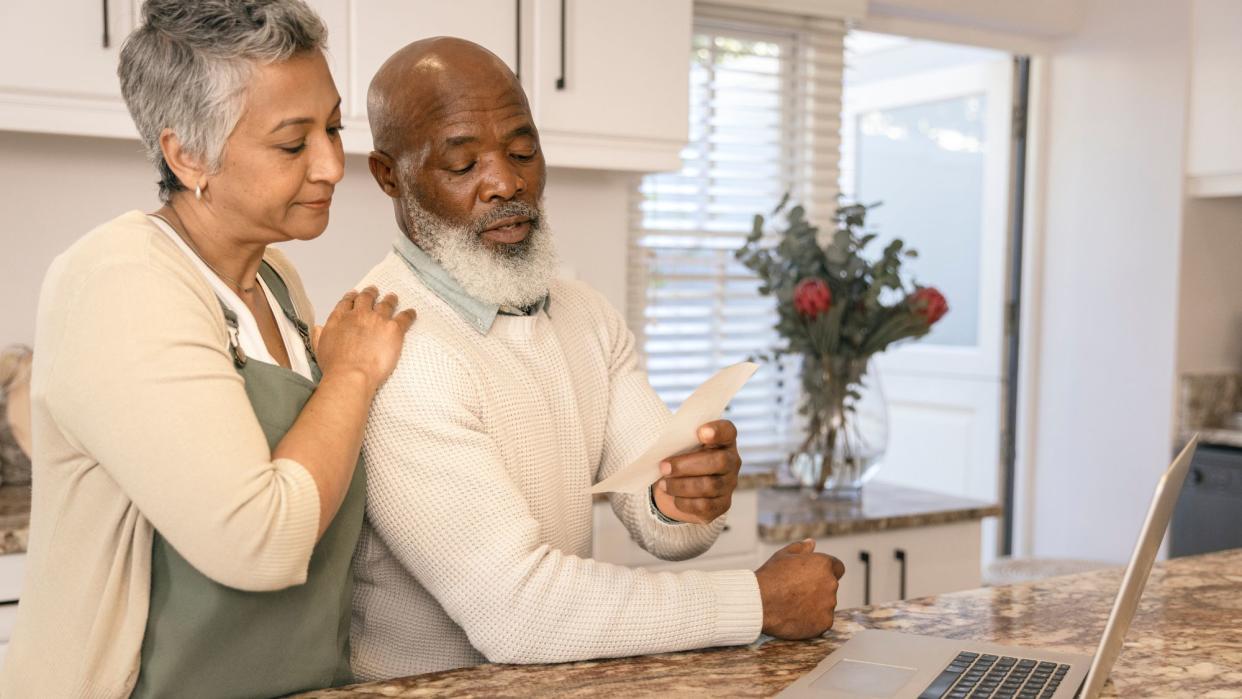Say it with taxes: the financial benefits of getting married

True love may be priceless but as Valentine’s Day approaches, the financial benefits of getting married are also worth considering.
Marriage is "on the decline", said The Independent's Helen Coffey, after latest data from the Office for National Statistics showed that, for the first time on record, fewer than 50% of over-16s in England and Wales were wed or in a civil partnership. The drop could be down to "cold, hard cash", as wedding costs soar.
Yet after the wedding has been paid for, said Unbiased, marriage may leave couples "significantly better off over time".
Marriage allowance
The marriage allowance lets people transfer £1,260 of their Personal Allowance – the amount you can earn tax-free each tax year – to their spouse or civil partner if they earn more.
Claiming the allowance can lower the higher earner's annual tax bill by up to £252, said MoneySavingExpert, so the policy "rewards the institution of marriage". To qualify, you must be married or in a civil partnership, one partner must be earning less than the Personal Allowance, and the other must be a basic-rate taxpayer earning below £50,270 a year (or £43,662 in Scotland).
But "watch out" if the non-tax payer earns between £11,310 and £12,570, the site said. "You could actually end up out of pocket", owing to the "way the tax is calculated".
To qualify for marriage tax allowance, both partners also need to have been born on or after 6 April 1935 (people born earlier may be able to benefit from the Married Couple’s Allowance instead).
And "don't worry" if you have only just heard of the tax break, said The Times Money Mentor. Eligible couples can backdate their claim by up to four years, to potentially "net a tidy sum" of more than £1,200.
HMRC has a marriage allowance calculator to help work out if you could be better off using the tax break.
Shared tax allowances
Married couples and civil partners can transfer assets to each other without incurring a tax bill, said Telegraph Money, "which can in turn save on capital gains tax" – the tax on profits from selling an asset.
So transferring assets could be a "good idea" if one spouse is a higher-rate taxpayer and the other doesn't pay tax.
The transfer must be "outright and unconditional", said financial advisers Frazer James, "so if you’re worried that they’ll run off and steal your money, maybe give this one a miss".
Inheritance issues
Married couples have "more protection" when one partner dies, said Unbiased. Getting married means "your entire estate will automatically be left to your spouse", the site said, whereas "if you’re not married, your partner won’t get anything if you die, unless your will specifies that they should".
Money or assets "passed on" to a spouse are also "free" from inheritance tax (IHT) – charged at 40% on the sum of an estate that is above the £325,000 threshold.
And spouses can combine their inheritance tax allowances – worth a total £650,000 – when they pass away. In addition, there is an extra allowance if the married couple owns a property, letting a couple ring-fence up to £1 million, potentially saving their heirs thousands of pounds in taxes.
Plus, married couples can make financial gifts to each other throughout their lives "without worrying" about inheritance tax, said business advisers Burton Sweet. If they aren't married, gifts could be subject to IHT if the giver doesn't survive seven years after giving them.
Another potential benefit of being wed, said Telegraph Money, is that "if you have a final salary pension scheme, you can usually have some form of your pension paid out to your spouse when you die".
And "death in service payments can also be offered", Shaun Moore, tax and financial planning expert at Quilter, told the paper. But “if you are not married, or you have not filled out a nomination form", these payments are "often paid to the estate" and "unmarried partners may not be entitled to any of it".

